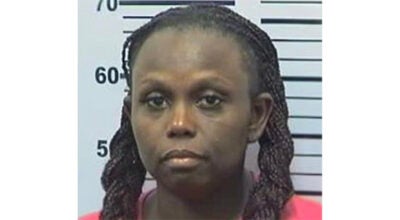Condemned man says state lost his execution method form
Published 9:22 pm Thursday, August 25, 2022
An Alabama inmate scheduled to be put to death by lethal injection next month says the state lost the paperwork he turned in selecting an alternate execution method.
Alan Eugene Miller, 57, is set to be put to death Sept. 22 for a 1999 workplace shooting rampage that killed three men.
When Alabama approved nitrogen hypoxia as an alternative execution method in 2018, state law gave inmates a brief window to designate it as their execution method. In a federal lawsuit filed Monday, attorneys argued Miller turned in a form selecting nitrogen, but the state lost it. They are seeking to block the lethal injection from going forward.
“If the State had not lost Mr. Miller’s form, Mr. Miller would otherwise be executed by nitrogen hypoxia,” his attorneys wrote in the court filing seeking to block his execution by lethal injection.
Alabama has not yet developed a system for using nitrogen to carry out executions so the state isn’t setting execution dates for inmates who choose that untested method. Miller signed a sworn statement saying that he had given the form to a corrections officer.
“I gave my signed form to the correctional officer who was collecting the forms,” the affidavit stated. MIller said he asked the officer for a copy of the form and the officer refused.
Lawyers for Miller raised the issue with the Alabama Supreme Court when the state sought an execution date. Holman Warden Terry Raybon submitted an affidavit saying the prison had no record of Miller’s form.
Attorneys for Miller said the Alabama attorney general’s office recently withdrew an execution date request for another inmate after his lawyers provided proof that the inmate had selected nitrogen hypoxia. The inmate said he signed two copies of the election form, giving one to his lawyers and another to a prison employee, but the state said it had no record of it.
Miller, a delivery truck driver, was convicted in the workplace shootings that killed Lee Holdbrooks, Scott Yancy and Terry Jarvis. Prosecutors said Miller killed Holdbrooks and Yancy at one business and then drove to another location to shoot Jarvis. Each man was shot multiple times.
Jurors convicted Miller after 20 minutes of deliberation and then recommended a death sentence, which a judge imposed.
Testimony indicated that Miller was delusional and believed the men were spreading rumors about him, including that he was gay. A defense psychiatrist hired for the trial found that Miller suffered from severe mental illness, according to court documents, but he also said Miller’s condition wasn’t bad enough to use as a basis for an insanity defense under state law.






